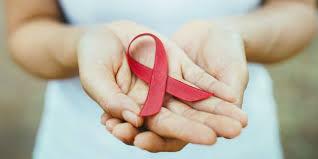With the awareness level, people finally understand the need for HIV testing. While we have a habit of getting tested only when it starts showing minor disease symptoms, this is slowly becoming uncommon; people prioritize regular checkups without any signs or issues. With more awareness about HIV, people have started understanding the disease better and know that we have come a long way in treating HIV.
However, getting tested for HIV for the first time might still seem nerve-wracking if you are unaware of the procedure. A comprehensive testing guide helps you understand what goes into HIV testing, the available tests, and how doctor consultation helps you after performing the tests.
A comprehensive guide also helps you understand where you can get tested near you, from hospitals to health services. If you are second-guessing about getting tested, you can always get pre-counseling, address your anxiety and fears, and understand the confidentiality of the test reports. Professionals will ensure you are comfortable throughout the testing process and know the procedure.
Understanding HIV and HIV Testing
HIV stands for Human Immunodeficiency Virus. HIV attacks our immune system once inside our system, targets CD4 cells, and makes them weaker over time. After our immune system starts deteriorating, we become more vulnerable to other conditions and diseases such as cancer, allergies, etc.
Suppose we do not control HIV after contracting it. In that case, it will further develop into AIDS, which stands for Auto Immunodeficiency Syndrome, making our immune system weaker than it already is. After contracting Aids, the disease gets life-threatening as our body will be unable to fight off minor issues, and we will become more vulnerable by the day.
HIV does not transmit just from physical touch. HIV only transmits from an infected person if you have an unprotected sexual relationship with them, if you share infected needles or open wounds, and during childbirth when the mother is infected, so will the child. Breastfeeding by an HIV-infected person will also infect the baby.
How do HIV tests differ?
The different types of HIV testing procedures are as follows:
Antibody Tests
Antibody Tests are the most common tests used to test if a person is HIV positive or not. Antibody tests require blood samples or oral swabs. Two types of antibody tests exist. The two main types are:
- ELISA Test – ELISA Test stands for Enzyme-Linked Immunosorbent Assay. It is a type of Antibody test that requires a blood sample. This test is highly accurate.
- Rapid Antibody Test – Rapid Antibody Tests are mostly known for quick results. The results come out within 20 minutes of taking the test. This test also requires a blood sample or oral fluid, giving the patient instant results.
Fourth-Generation Tests
Fourth-Generation Tests, also known as Combination tests, are known to detect both HIV antibodies and antigens. Antibodies and antigens are the viral proteins that are present in the blood. These tests are highly accurate and provide results before Antibody Tests. Before our body even produces detectable antibodies, Fourth-Generation Tests will help us know if we are HIV positive.
Nucleic Acid Tests (NAT)
Nucleic Acid Tests are best known for early detection of HIV tests. They are highly sensitive, and these tests detect the virus’s genetic material from our blood.
Home Testing Kits
While some people may still face difficulties going to a health clinic and getting tested, home testing kits would be the perfect solution. The kit has different things that will help you independently collect the blood sample or oral fluid. Online results will be published after the sample is sent directly to the laboratory. This test provides you with the privacy that you require.
These tests are very reliable and give accurate results. You can choose any testing method you want according to your needs and requirements.
The Basic Process of HIV Testing
If it is our first time, we may be unaware of the process that goes into HIV testing. The steps of HIV testing are:
-
Pre-Test Counseling
Healthcare providers give you pre-test counseling before taking the test. In the counseling, you will understand the importance of HIV testing, the procedure, different testing methods, and your concerns. During this, you can ask or address any queries related to the test.
-
Collecting Sample
Your sample collection type may differ from the different types of HIV testing methods you have picked. While some tests require your blood sample, others only require oral fluid.
-
Lab Testing
After collecting your sample, it is sent to the lab for various tests. The report will then determine whether you are HIV positive or not.
-
Test Results
The laboratory will return the test results, and you can collect your test results from your designated place. If you get home tested, your report will be published online.
-
Post-test Counseling
Post-test counseling is important regardless of the test result. The counseling will help you understand where you stand with HIV. If you are infected or at risk of getting infected, your doctors will help you understand and devise a plan tailored to your condition.
Conclusion
HIV testing may seem scary initially, but you will feel more comfortable once you understand the importance and become familiar with the process. Tests come in a variety of types to choose from. If you still need help understanding the process, you can go through pre-test counseling and understand the process in depth. By getting HIV tested, you will understand where you stand with HIV. As well as keeping you safe and aware, but it also helps you protect people around you. Without testing, it will take us some time to show the symptoms of the disease. During that time frame, we might spread the infection to others. Early detection helps prepare us for the illness and gives us peace of mind.



